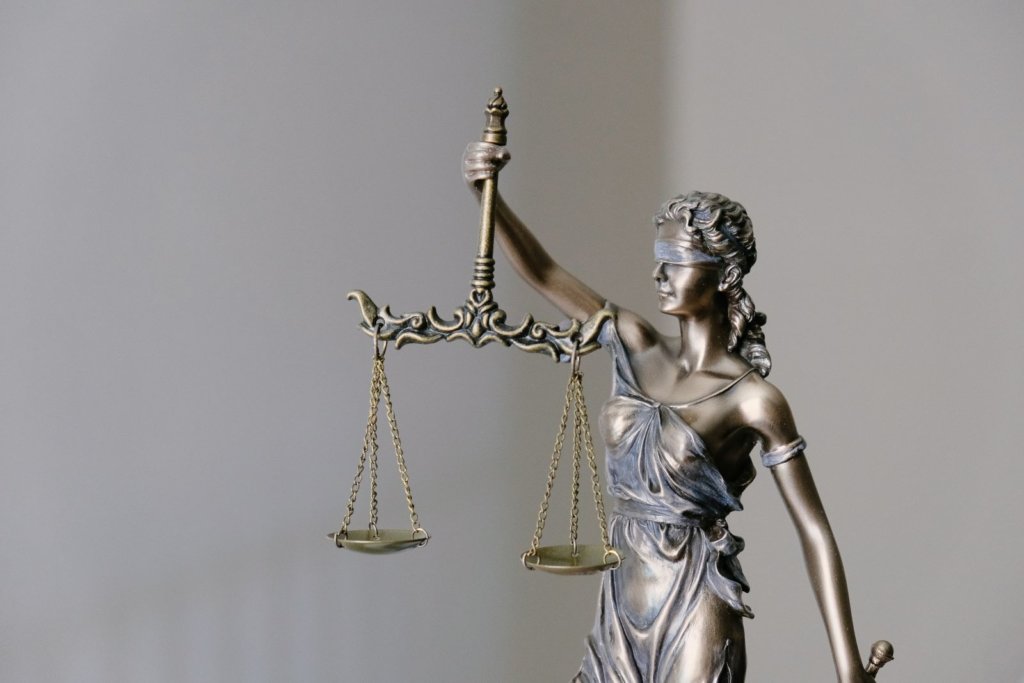As we celebrate Dr. Martin Luther King Jr.’s birthday here in the U.S., I keep thinking about one of my favorite quotes of his. There are many because the man was an eloquent speaker, but in 1963 he said, “Injustice anywhere is a threat to justice everywhere. We are caught in an inescapable network of mutuality, tied in a single garment of destiny. Whatever affects one directly, affects all indirectly. Never again can we afford to live with the narrow, provincial ‘outside agitator’ idea. Anyone who lives inside the United States can never be considered an outsider anywhere within its bounds.”
It’s an interesting concept, and one that continues to be relevant, this notion of “outsider” and how we apply justice to anyone we perceive to be an outsider. Did you know it’s been 20 years since the first detainees arrived at Guantánamo Bay? And that those prisoners were subjected to torture? Only 39 prisoners remain and more than a dozen of them have yet to face charges. They have been dubbed “forever prisoners” by some Democrats. The cost of operating the prison is about $13 million per prisoner every year, according to a Business Insider article! Are you freaking kidding me? I could think of a lot of better uses for $13 million per person.

Justice is supposed to be blind, but is it? Photo by Tingey Injury Law Firm on Unsplash
And even if you’re saying, “Yeah but they’re terrorists! They need to be held captive!” The cost to house a single prisoner in California is more than $75,000, according to the LA Times, which is still more than a year at Harvard. Clearly there’s a lot of injustice, a lot of mismanaging funds, and yet a small group of people continue to let incidents like these occur.
It brings to mind an excellent article I read on LitHub by Rebecca Solnit posted in 2018 about how there’s a myth surrounding the “real” America. She wrote:
“[I]n the news and political life, we’re still struggling over whose story it is, who matters, and who our compassion and interest should be directed at.
“The common denominator of so many of the strange and troubling cultural narratives coming our way is a set of assumptions about who matters, whose story it is, who deserves the pity and the treats and the presumptions of innocence, the kid gloves and the red carpet, and ultimately the kingdom, the power, and the glory. You already know who. It’s White people in general and White men in particular, and especially White Protestant men, some of whom are apparently dismayed to find out that there is going to be, as your mom might have put it, sharing. The history of this country has been written as their story, and the news sometimes still tells it this way – one of the battles of our time is about who the story is about, who matters and who decides.”
Precisely. So much of justice and injustice is tied to who matters and who decides. If Black people don’t matter, then it’s fine to kill them in the streets. If terrorists don’t matter, it’s OK to torture them. But who exactly is deciding they don’t matter? And why is that those people are in charge? The reality is the White population in the U.S. is declining and other races are increasing. Where I live, the majority of people are not White. To my mind, that means decisions being made about policies and procedures should take into account that diversity, should recognize this country belongs to everyone who lives here. In essence, to bear in mind what Dr. King mentioned so long ago: that injustice anywhere is a threat to justice everywhere.
I dream of a world where we treat all human beings with love and respect. A world where we value justice not only in word but in action. A world where we celebrate and protect human diversity while also seeking to transcend divisions. A world where we honor Dr. King’s legacy by bringing his dream into reality.
Another world is not only possible, it’s probable.
I have a tendency to idealize people, especially leaders. Not government officials because their peccadilloes are well documented, but other leaders like Gandhi and Dr. Martin Luther King, Jr. However, everyone has their flaws. Gandhi was a racist and had some weird, perhaps even abusive, sexual behaviors. Dr. King cheated on his wife. Did both of these men contribute to society and deserve recognition for that? Absolutely. But were they perfect? No.
That’s quite common actually for revolutionaries. I’m going to quote Rutger Bregman from a super-long article in The Correspondent. He read a book by British journalist Helen Lewis called Difficult Women that chronicles the history of feminism in Great Britain. In the book she makes the point many revolutionaries are difficult. Progress tends to start with people who are obstinate, obnoxious, and deliberately rock the boat. Also, doing good work in the world doesn’t mean a person is perfect.
Bregman writes: “Lewis’s criticism is that many activists appear to ignore this complexity, and that makes them markedly less effective. Look at Twitter, which is rife with people who seem more interested in judging other tweeters. Yesterday’s hero is toppled tomorrow at the first awkward remark or stain of controversy.”

I know it’s a little silly to use a Batman figurine to illustrate this post, but Batman is a human and he’s a hero so. . . Photo by Ali Kokab on Unsplash
I’m reminded you don’t have to be perfect to make great change in the world and in fact, I take heart in that regular people with passion do that all the time. As we’ve recently celebrated Pride, I’d like to mention one such person: Marsha P. Johnson, a Black trans woman, who played a key role in the fight for LGBTQ equality. Three passionate Black women making a difference today are the co-founders of Black Lives Matter: Patrisse Khan-Cullors, Alicia Garza, and Opal Tometi.
You obviously don’t have to be a saint to be a leader, to be a spiritual revolutionary. My teacher says true leaders or spiritual revolutionaries work to achieve progressive changes for human elevation on a well-thought, pre-planned basis, whether in the physical, metaphysical, or spiritual sphere and they follow an ethical code. That ethical code includes things like not intentionally harming others, practicing benevolent truthfulness, not stealing, sacrificing to serve others, etc.
Today I am reminded that you and I can also be leaders in our own right, in our own way. If we are working to elevate humanity and doing our best to be ethical people, we fall into that category. We may never have the notoriety of any of the leaders I mention in this post, but we’re still leaders and the work we’re doing still matters. We need different people playing different roles to create change.
I’m going to end with another quote by Bregman here. He says:
“Our inclination – in talk shows and around dinner tables – is to choose our favorite kind of activism: We give Greta Thunberg a big thumbs up but fume at the road blockades staged by Extinction Rebellion. Or we admire the protesters of Occupy Wall Street but scorn the lobbyists who set out for Davos.
“That’s not how change works. All of these people have roles to play. Both the professor and the anarchist. The networker and the agitator. The provocateur and the peacemaker. The people who write in academic jargon and those who translate it for a wider audience. The people who lobby behind the scenes and those who are dragged away by the riot police.”
I dream of a world where we all work together to make a better society. A world where we recognize we all have the capacity to be leaders. A world where we remember we don’t have to be perfect to make a difference. A world where we see ourselves for the heroes we are.
Another world is not only possible, it’s probable.